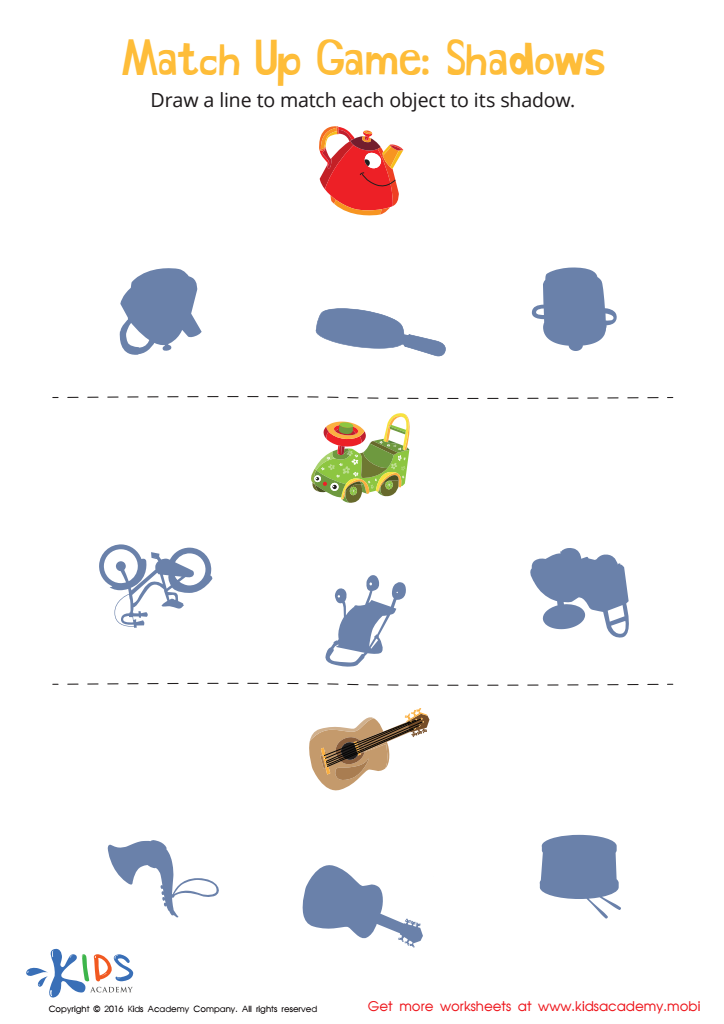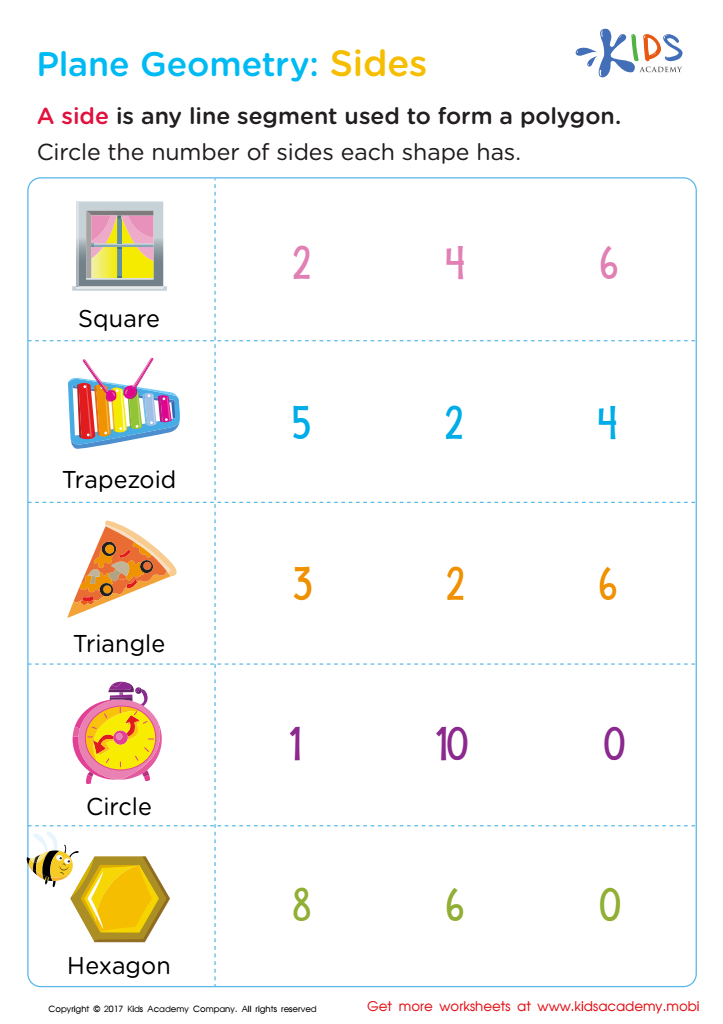Geometry Worksheets for Ages 3-4
85 filtered results
-
From - To
Introducing our Geometry for Ages 3-4 worksheets, a captivating collection designed to spark the imaginations of young minds and introduce them to the world of shapes and patterns. Tailored specifically for preschoolers, these worksheets combine fun, engaging activities with foundational geometric concepts. From recognizing and naming simple shapes to understanding spatial relationships, our worksheets are crafted to nurture curiosity, enhance fine motor skills, and lay the groundwork for future mathematical learning. Dive into a world of learning where each page turns complexity into clarity and fosters a love for geometry in the hearts of our youngest learners. Perfect for at-home or classroom use, our Geometry for Ages 3-4 collection is your child's first step into the fascinating world of shapes and spaces.
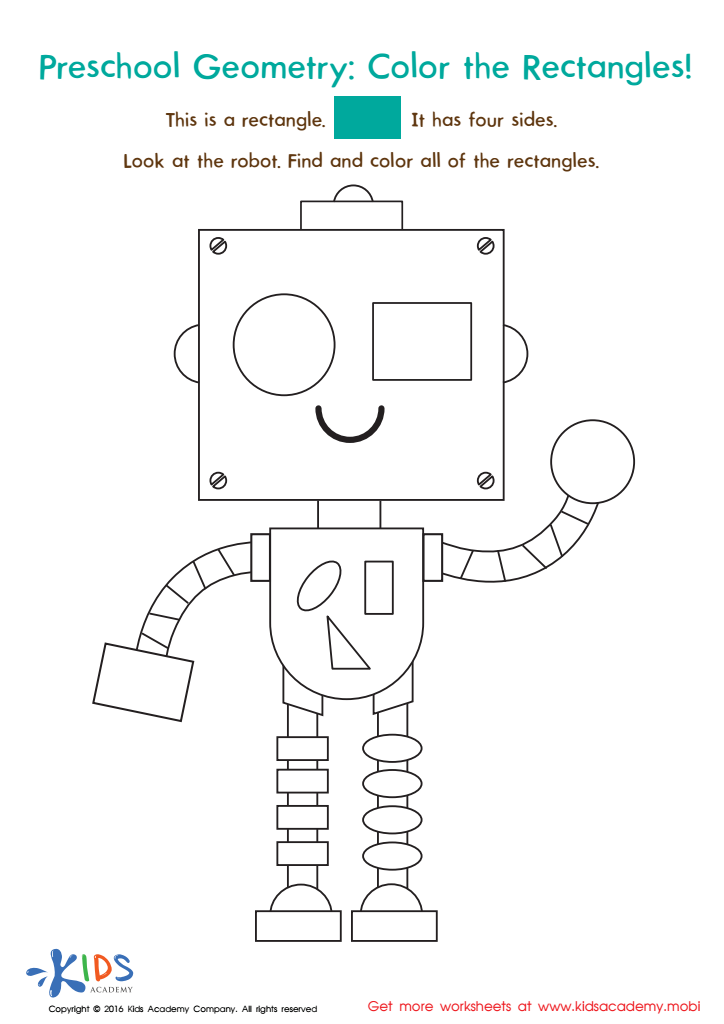

Geometry Worksheet
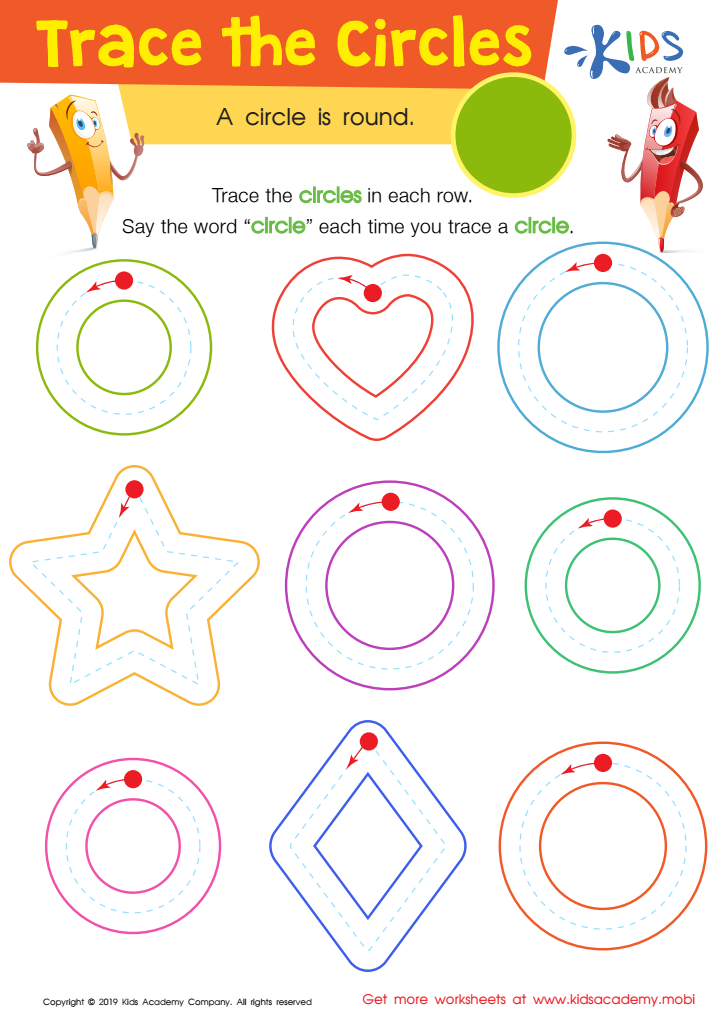

Trace The Circles Worksheet
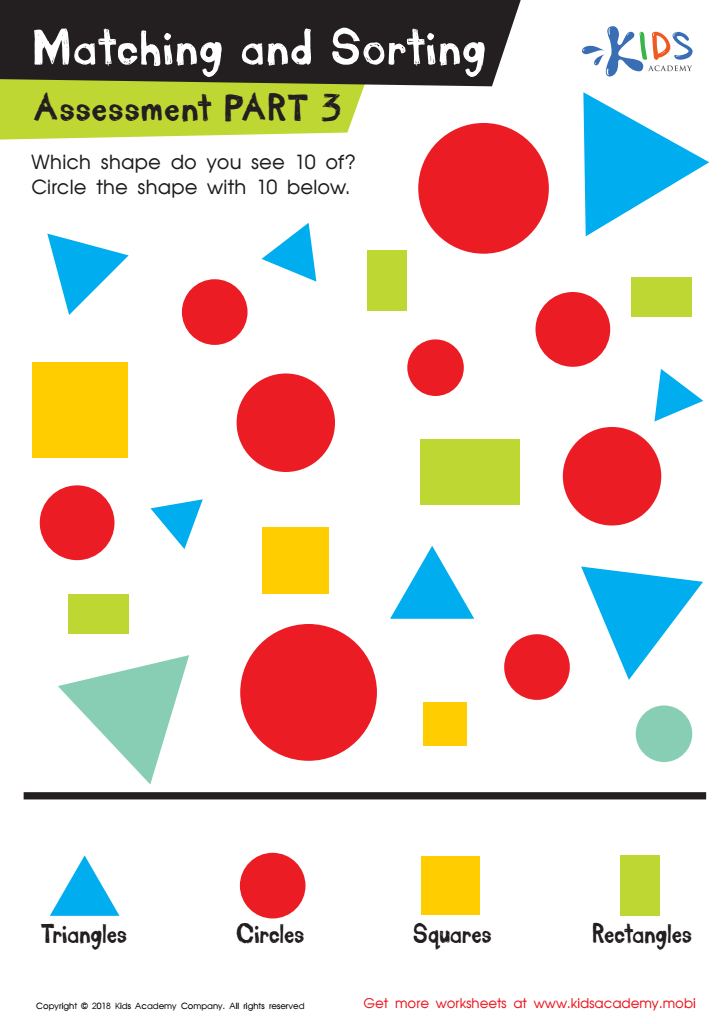

Matching and Sorting for Kindergarten: Assessment 3 Worksheet
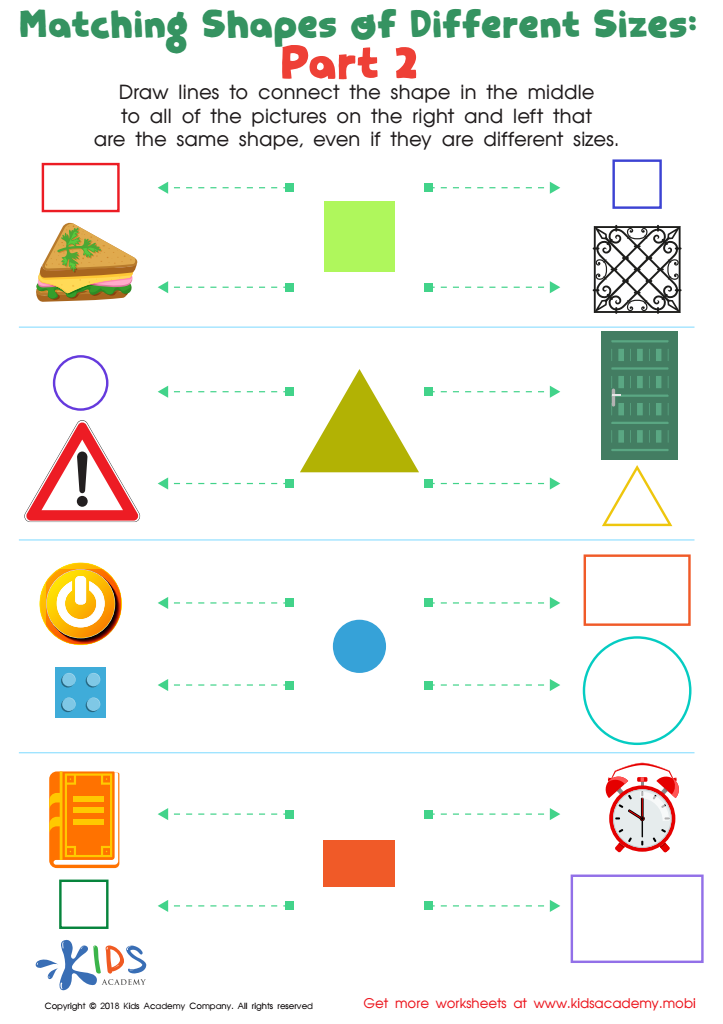

Geometry: Part 2 Worksheet
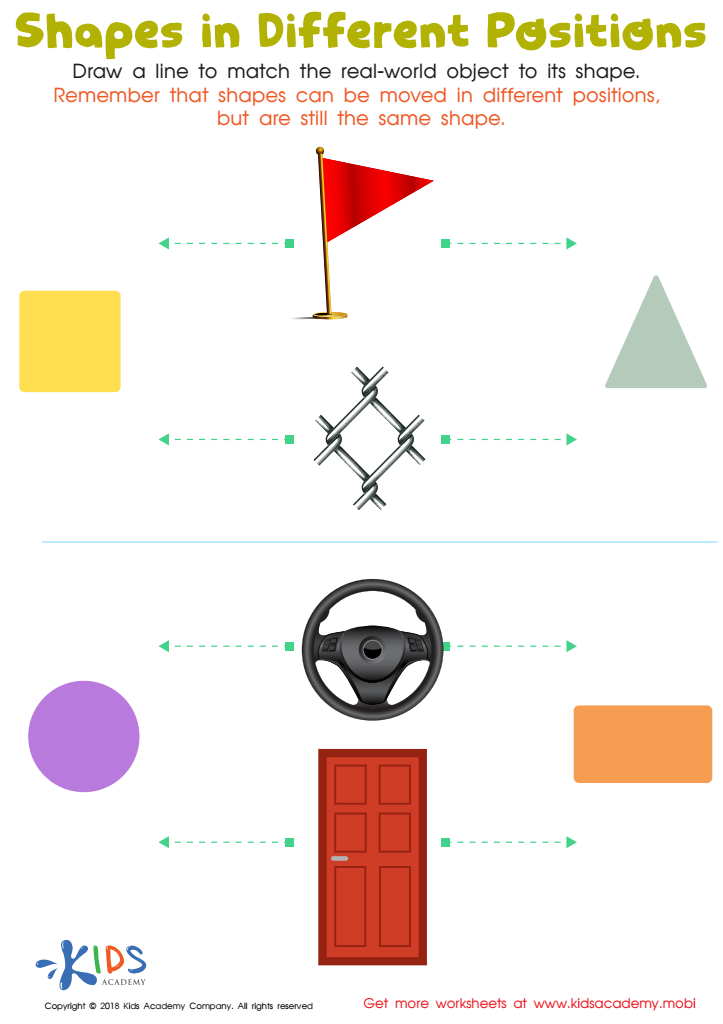

Shapes in Different Positions Worksheet
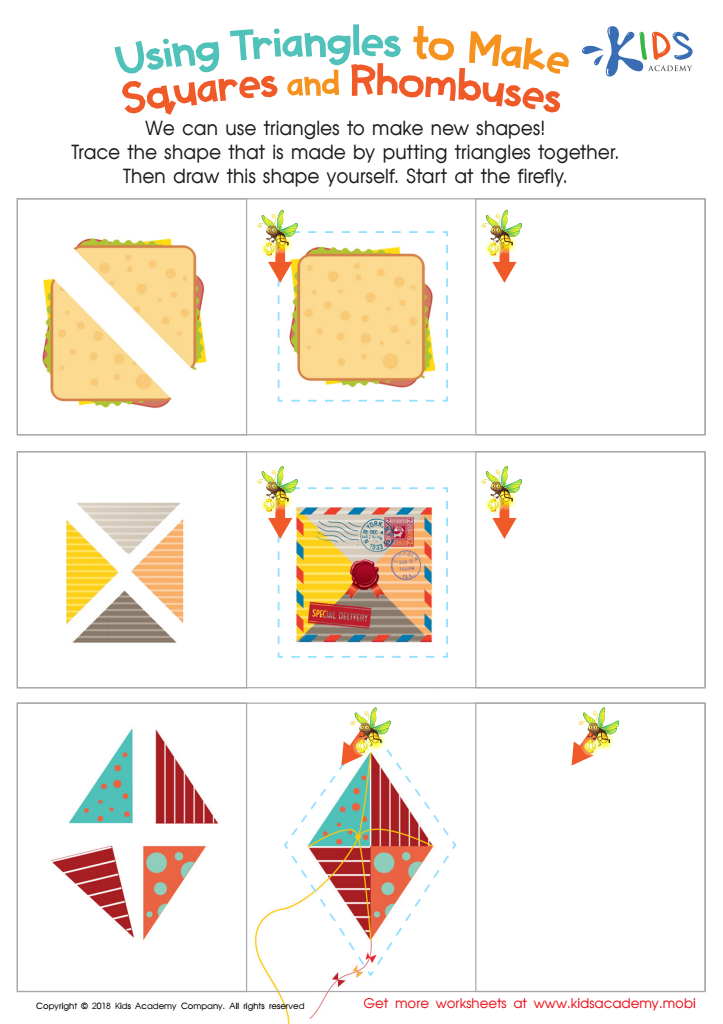

Using Triangles to Make Squares and Rhombuses Worksheet
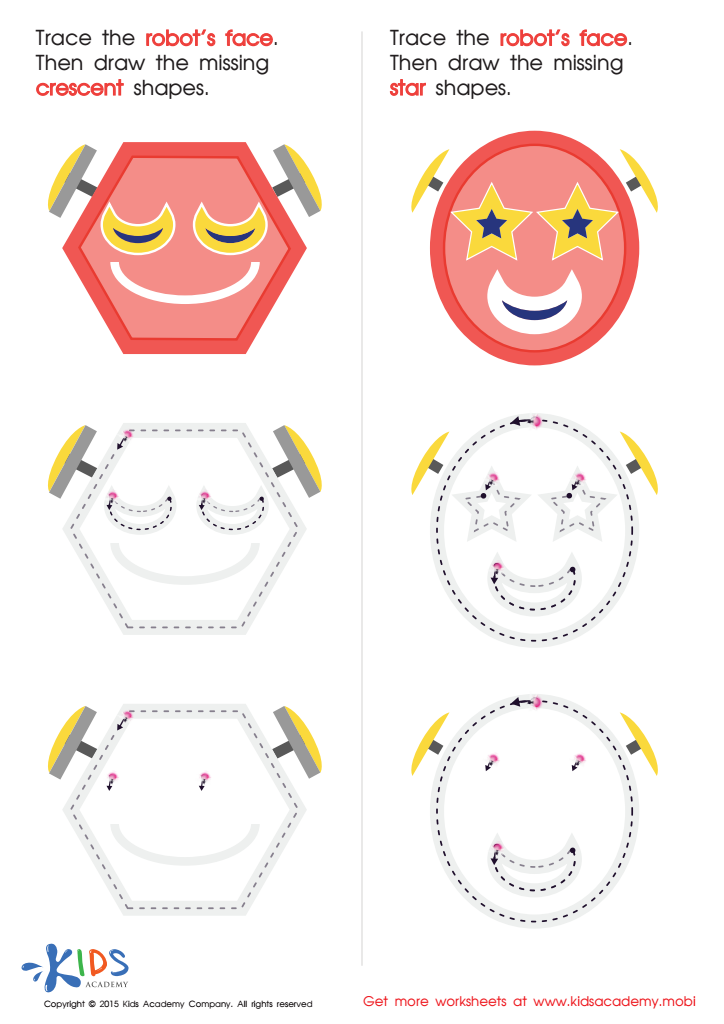

Composing a Robot's Face of Crescents And Stars Worksheet
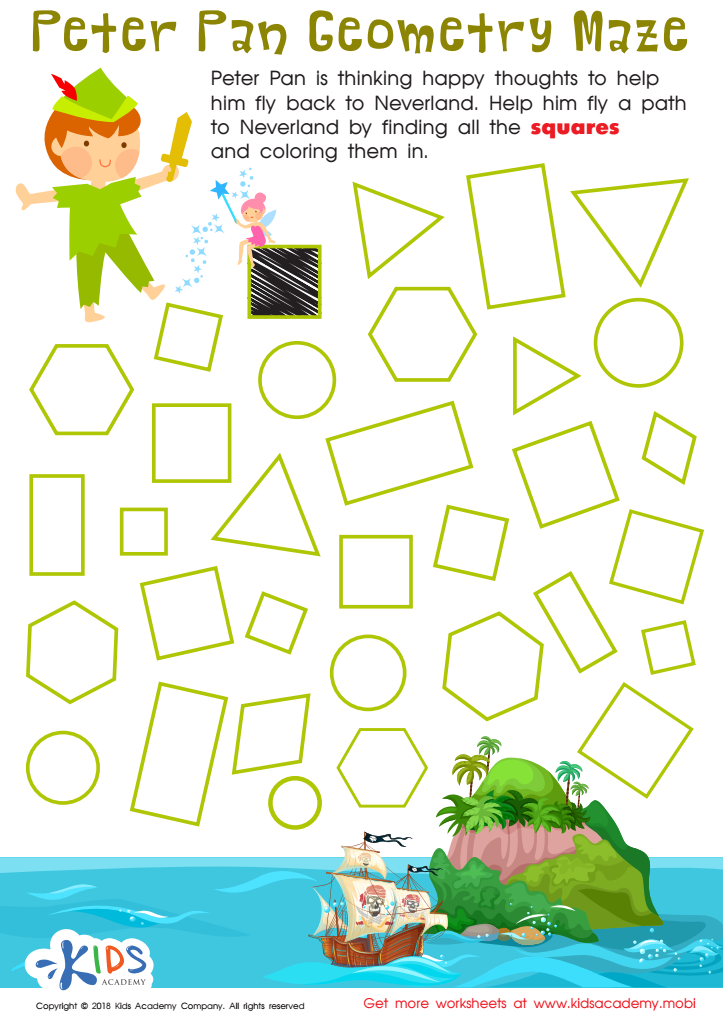

Peter Pan Worksheet
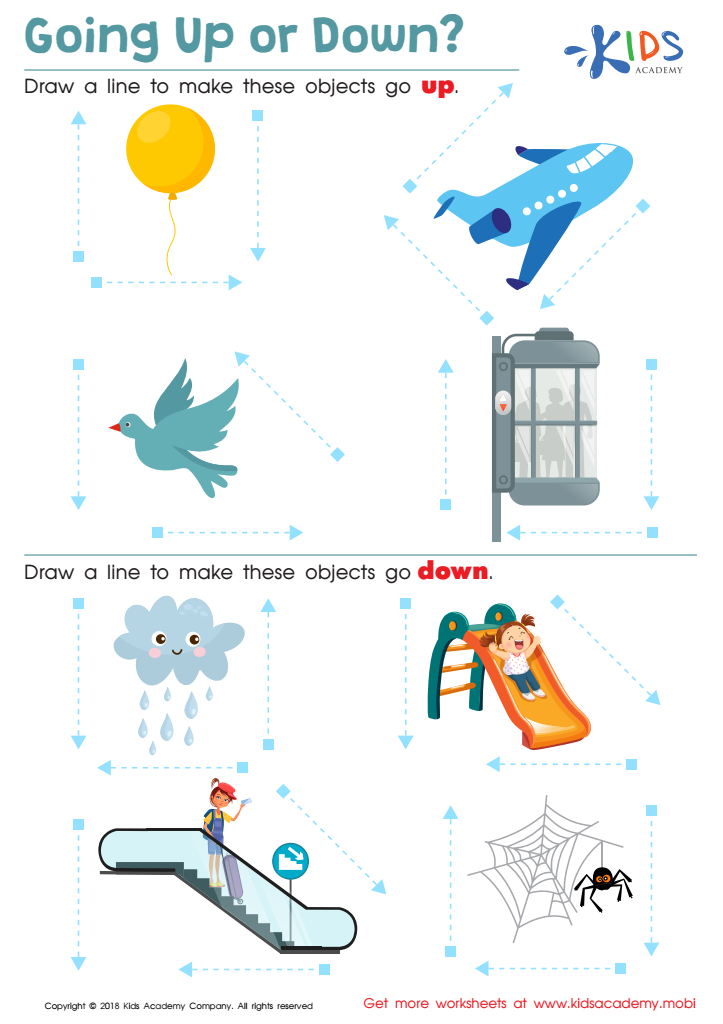

Going up or Down? Worksheet
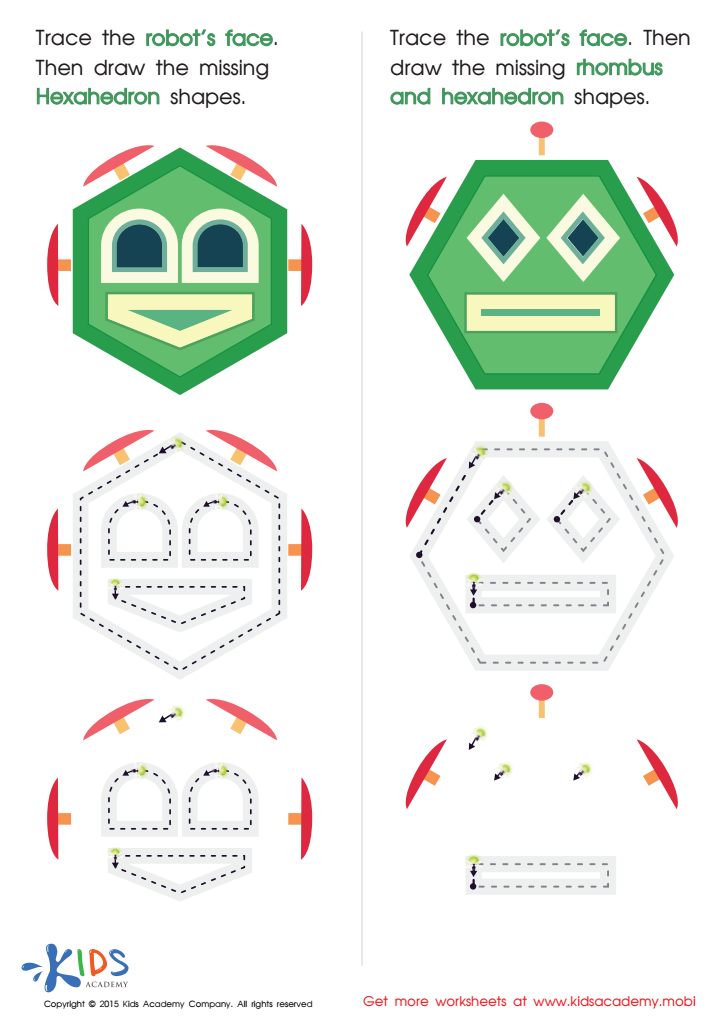

Practice Drawing Hexahedrons And a Rhombus Worksheet
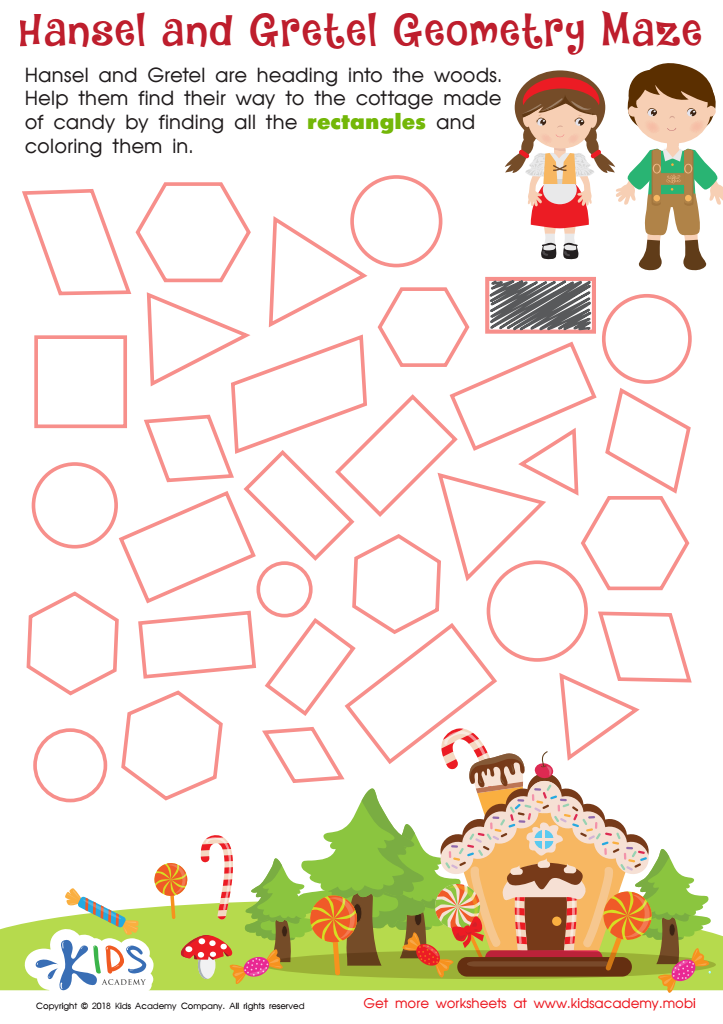

Hansel and Gretel Geometry Maze Worksheet
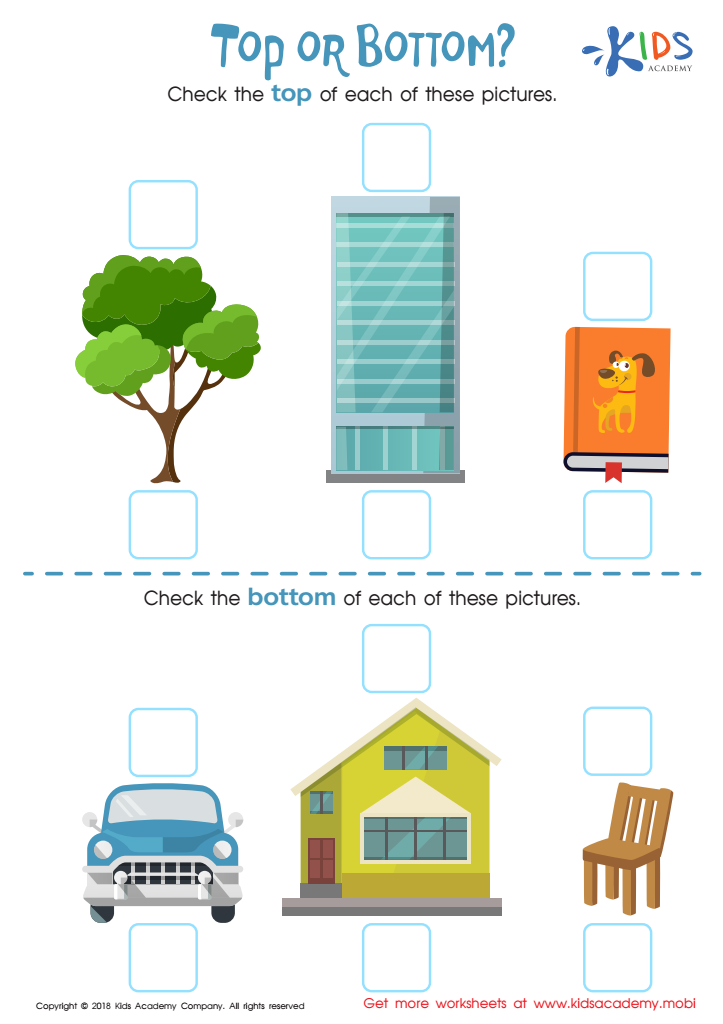

Top or Bottom Worksheet
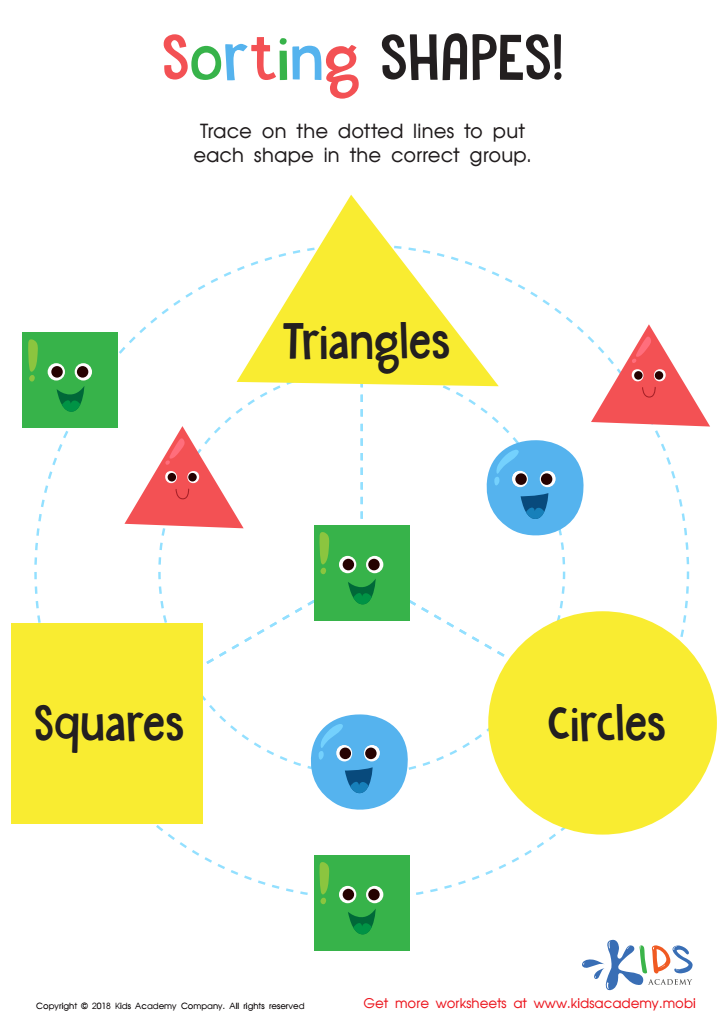

Sorting Shapes - Part 3 Worksheet
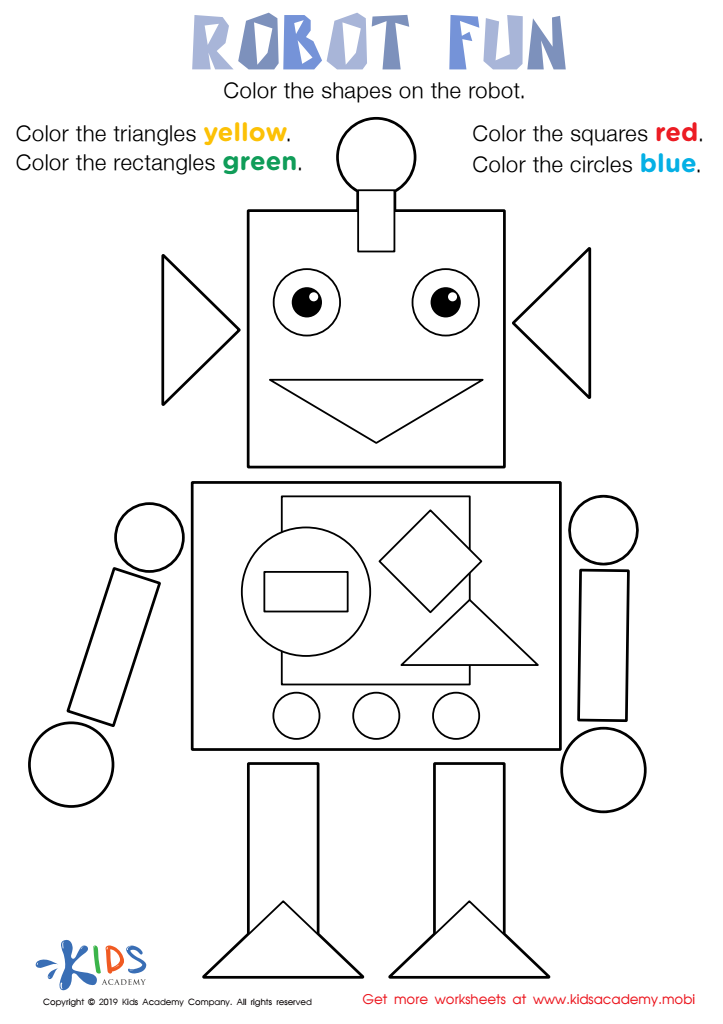

Robot Fun Worksheet


Drawing a Triangle Worksheet
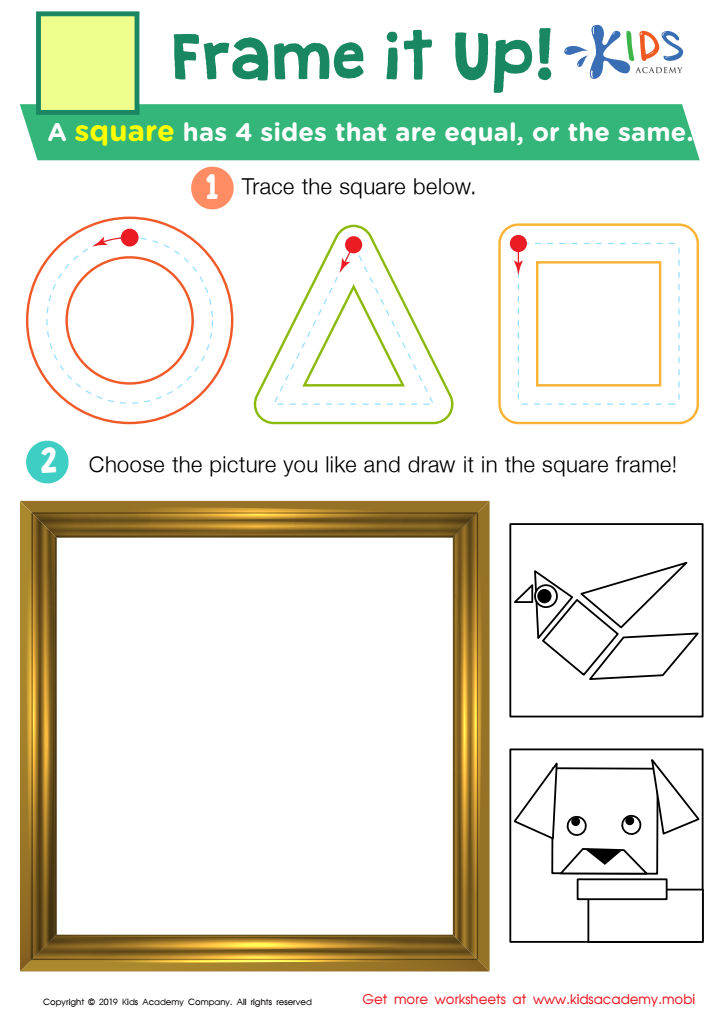

Frame it Up Worksheet
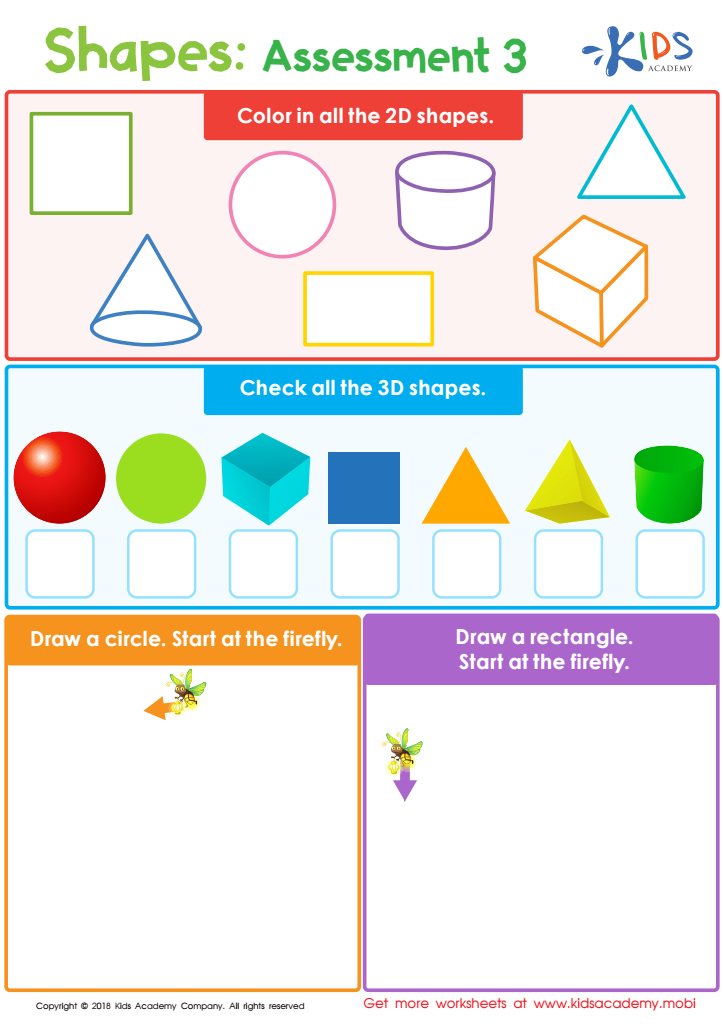

Shapes: Assessment 3 Worksheet
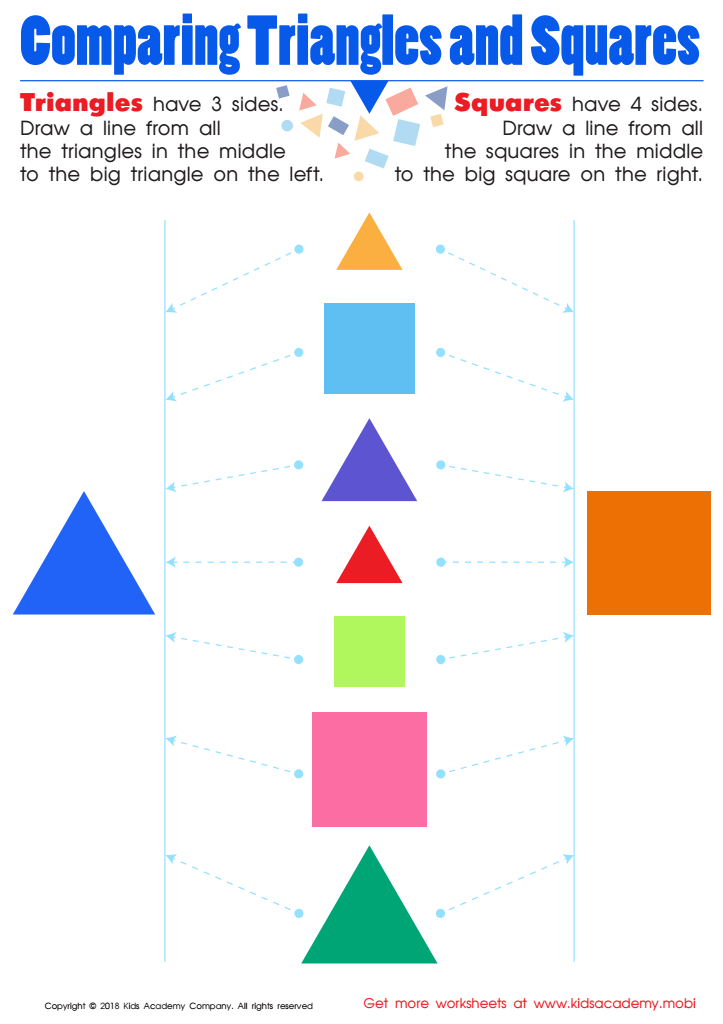

Comparing Triangles Squares Worksheet
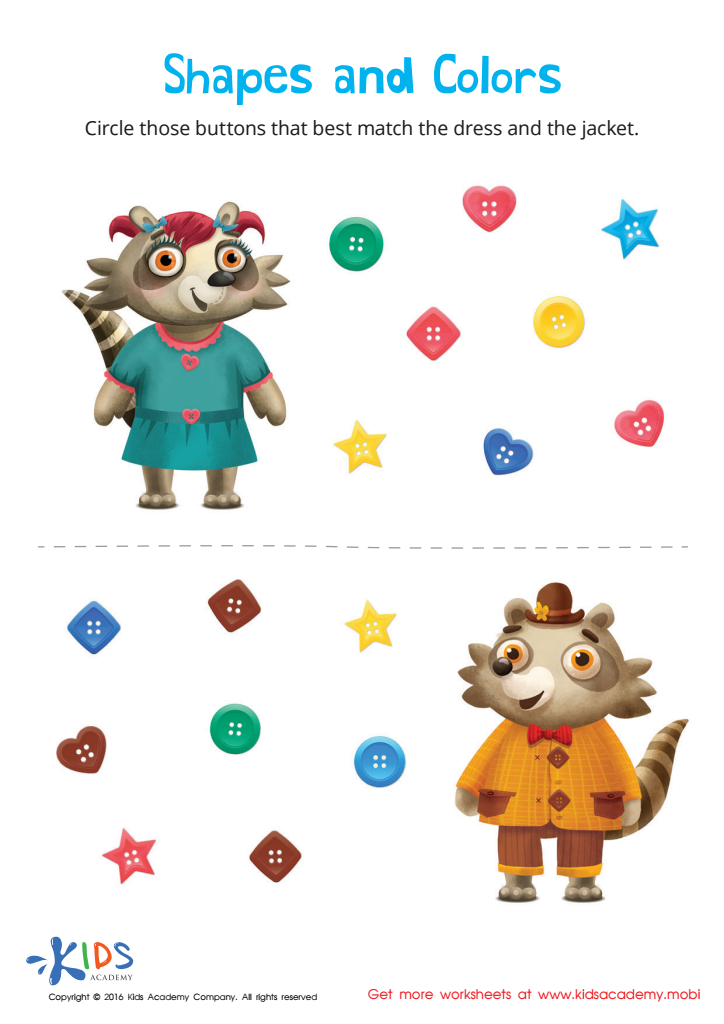

Matching: Shapes and Colors Worksheet
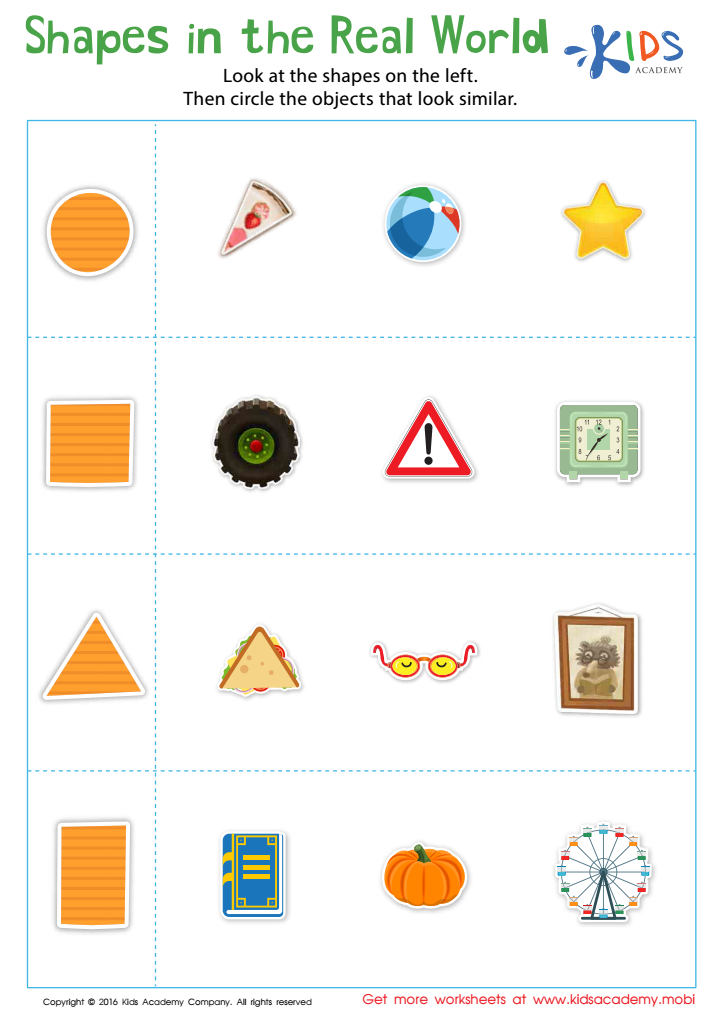

Shapes in the Real World Worksheet
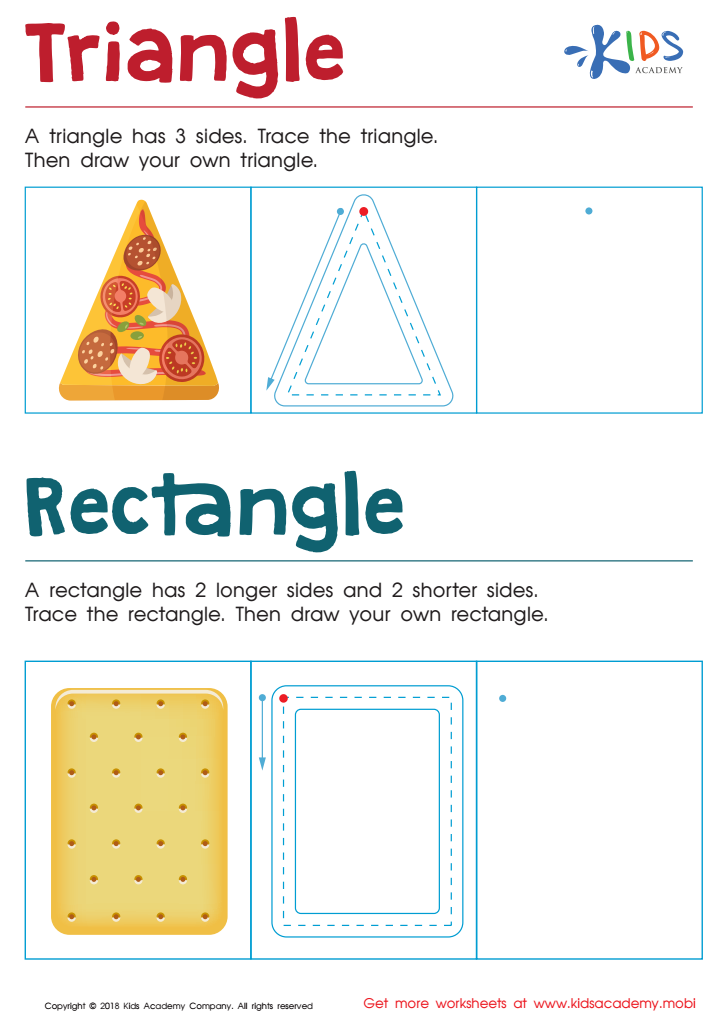

Triangle Rectangle Worksheet
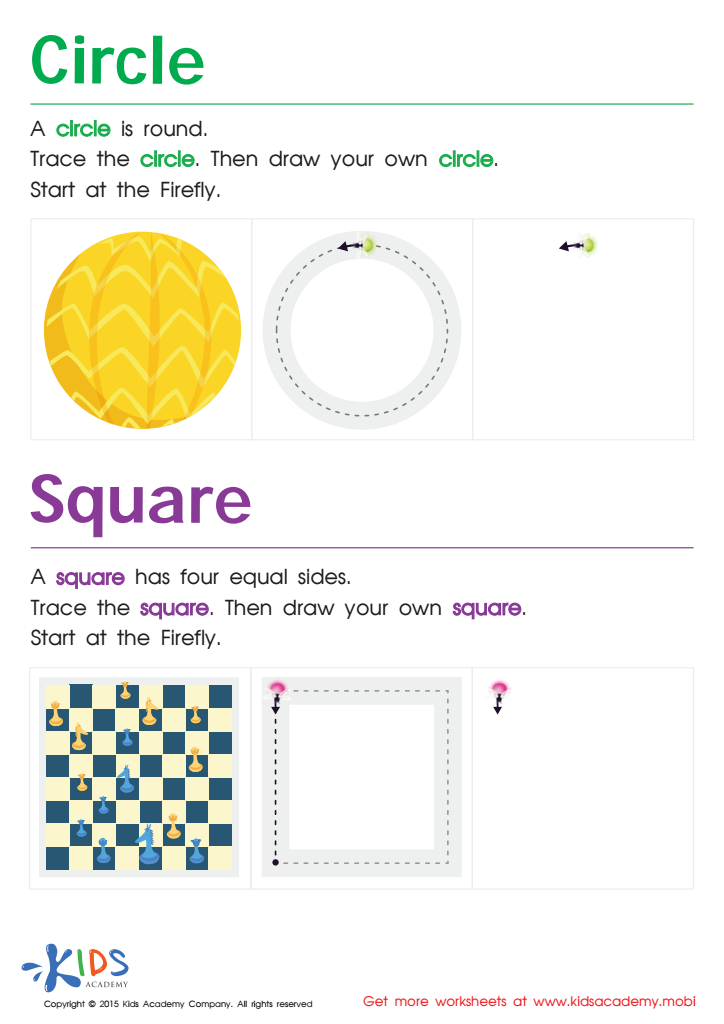

Trace And Draw a Circle And a Square Worksheet
Geometry for Ages 3-4 is not just about shapes; it's a foundational platform for young learners to explore, understand, and interact with the world around them. At this tender age, children are naturally curious, and their minds are incredibly receptive to the patterns and structures that geometry introduces. Worksheets designed specifically for this age group serve as an invaluable tool in nurturing this curiosity and laying down the early building blocks of mathematical thinking.
Through engaging and age-appropriate geometry worksheets, children aged 3 to 4 can embark on a journey of discovery, where they learn to identify, differentiate, and even create basic shapes. These activities enhance their visual-spatial awareness, a critical skill for reading, writing, and of course, mathematics. Furthermore, geometry worksheets foster problem-solving skills and encourage logical reasoning as children figure out how shapes fit together or identify patterns.
Incorporating geometry worksheets into the learning routine of children ages 3 to 4 also supports the development of fine motor skills. As they trace, draw, and color shapes, they refine their hand-eye coordination and control. This holistic approach not only makes learning fun but also ensures that the foundational concepts of geometry are embedded in their young minds, setting a strong base for more complex mathematical concepts in the future.

 Assign to My Students
Assign to My Students











